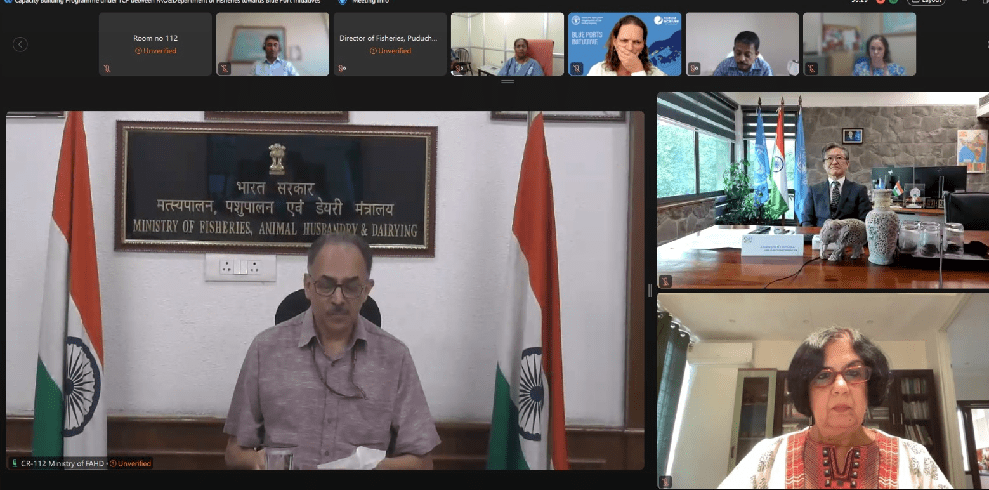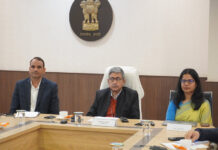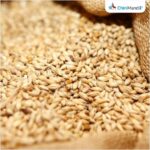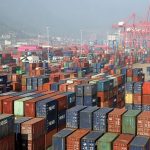The Department of Fisheries (DoF), under the Ministry of Fisheries, Animal Husbandry and Dairying (MoFAHD) has signed a Technical Cooperation Programme (TCP) agreement with the Food and Agriculture Organization (FAO) of the United Nations to strengthen Blue Port infrastructure in India. In line with this, the Department of Fisheries organized the first webinar today, under the FAO’s TCP programme as part of a series of three webinars and physical workshops to build capacity and share global best practices. Dr. Abhilaksh Likhi, Secretary, DoF addressed the webinar on the topic of “Foundations of a Blue Port: Generating Value in Fishing Ports”. The webinar also witnessed participation from Takayuki Hagiwara, FAO Representative in India.
During his address, Dr. Abhilaksh Likhi, emphasized that fishing ports are not just physical infrastructures but strategic gateways to economic prosperity, ecological sustainability, and social inclusion. He reiterated the government’s vision of developing ecologically healthy, economically viable, and socially inclusive fisheries systems to strengthen national food and nutritional security. Emphasizing upon the integration of advanced technologies such as 5G, artificial intelligence, automation, and digital platforms, he highlighted their role in enhancing efficiency and service delivery at fishing ports. He underlined the contribution of flagship schemes like PMMSY and FIDF in driving modernization and stakeholder empowerment and called for collaborative efforts between public and private stakeholders to address climate resilience, traceability, and energy transition in port operations. Welcoming FAO’s support in piloting strategic upgrades at Vanakbara ( Diu) and Jakhau (Gujarat) ports, he noted that under PMMSY, three Smart and Integrated Fishing Harbours are being developed in Gujarat, Daman & Diu, and Puducherry with a total investment of ₹369.80 crores.
The webinar featured expert presentations by FAO officials, including Jose Estors, Yolanda Molares, and Ms. Lucia Lopez de Aragon, on the concept of Blue Ports and their role in promoting sustainable, inclusive, and innovative practices to enhance efficiency, reduce environmental impact, and generate socio-economic benefits. The sessions covered a roadmap for transitioning ports towards sustainability and stronger stakeholder collaboration, a case study on the Port of Vigo (Spain) showcasing successful implementation and participatory discussions on the key challenges and possible actions for adopting the Blue Ports approach in India. The webinar served as an important platform for sharing global best practices and fostering collaboration among stakeholders. The deliberations are expected to support India’s efforts in developing sustainable, technology-driven, and inclusive Blue Ports, thereby strengthening livelihoods, promoting exports, and enhancing the competitiveness of the fisheries sector.
The event also witnessed participation from senior officials of FAO Headquarters, representatives from the Port of Vigo (Spain), senior government officials from coastal States and Union Territories, Maritime Boards, Major Port Authorities, Fisheries cooperatives, and other key stakeholders.


















